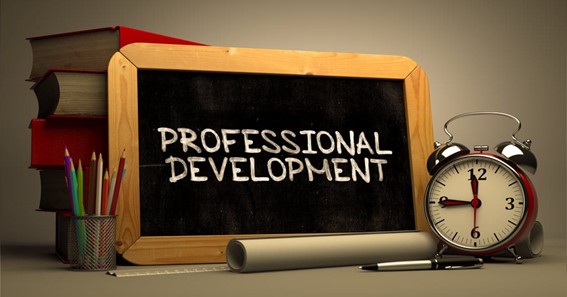Professional development is essential to any career, including teaching. Constant learning through great training from institutes like Accutrain and honing of skills are required to provide the optimal learning experience for their students. This comprehensive guide will examine various professional development skills teachers need to excel in their profession.
Classroom Management:
Efficient classroom management is vital to creating an enjoyable and rewarding learning experience. Teachers can enhance their classroom management abilities by attending training workshops focusing on discipline strategies and behavior management techniques and creating an upbeat classroom culture.
Technology Integration:
Integrating technology into classroom instruction has never been more essential in today’s digital world. Teachers can take advantage of professional development opportunities focused on using educational technology like interactive whiteboards, educational apps, and online resources to enhance teaching and learning experiences for all their students.
Differentiated Instruction:
Every student is different, and educators must adjust their teaching methods to address individual learning needs. Professional development sessions emphasizing differentiated instruction provide teachers valuable insight into tailoring lessons to accommodate diverse learners and encourage academic development.
Data-Driven Instruction:
Data analysis plays an integral part in informed decision-making for educators. Teachers can benefit greatly by learning to collect and analyze student data to pinpoint strengths and weaknesses to provide personalized instruction or interventions when appropriate.
Collaborative Learning Strategies:
Promoting collaborative learning in the classroom fosters teamwork, critical thinking, and problem-solving abilities among students. Teachers can increase their capacity to facilitate this learning with workshops emphasizing group dynamics and cooperative learning strategies.
Culturally Responsive Teaching:
Culture-sensitive teaching enlists students’ multicultural identities to foster an inclusive classroom atmosphere with appropriate cultural sensitivity.Which leads to an all inclusive classroom and atmosphere of equality.
Assessment and Feedback:
Teachers can utilize effective assessment practices to monitor student development while pinpointing areas requiring further support. Attending professional development workshops dedicated to various assessment techniques and providing constructive feedback could prove advantageous in keeping children on track with their education.
Growth Mindset:
Engaged students are more likely to excel academically. Attending professional development workshops focused on creative and engaging teaching methods can assist teachers with creating classroom engagement strategies to keep students involved in their learning experience.
Emotional Intelligence:
Emotional intelligence is vital for creating successful teacher-student relationships and an inclusive classroom atmosphere. Teachers can expand their emotional quotient by attending workshops covering self-awareness, empathy, and effective communication techniques.
Classroom Assessment Techniques:
Teachers can reap significant advantages by employing various classroom assessment methods, including minute papers, one-minute essays, and concept mapping, to measure student understanding and inform instructional adjustments.
Reflective Teaching:
Reflective practice allows educators to evaluate their teaching methods and make necessary improvements over time. Professional development workshops on reflective teaching offer educators tools for recognizing patterns and adjusting to deliver better results.
Project-Based Learning:
Project-based learning enthuses students to apply their knowledge and abilities in practical situations. It allows teachers to build expertise through workshops that offer hands-on experience and ideas on incorporating projects into the curriculum.
Student-Centered Instruction:
By placing students at the forefront of learning, teachers can empower pupils to take control of their education and take charge of their future. Professional development sessions that emphasize student-centric approaches, such as inquiry-based learning or student-led discussions, can assist teachers in this area of education.
Classroom Technology Management:
Effective classroom technology management ensures it enhances rather than detracts from student learning experiences. Professional development opportunities in this area equip teachers with strategies for seamless integration and troubleshooting of technology into lessons.
Mindfulness in the Classroom:
Integrating mindfulness practices into classroom environments can have a transformative effect on both student well-being and academic performance. Teachers can explore professional development opportunities by implementing breathingwork exercises and guided relaxation to create a calming learning environment with reduced stress levels, enhanced concentration and engagement with learning processes, and a peaceful classroom atmosphere. Furthermore, educators can promote holistic student development within nurturing learning environments by including mindfulness in their teaching practices.
Conclusion:
Professional growth for educators is an ongoing journey, and mastering diverse skill sets is integral to providing high-quality education. This guide highlights various experienced development skills teachers should focus on to strengthen their teaching practice and foster engaging learning environments that allow their students to flourish academically and personally.






